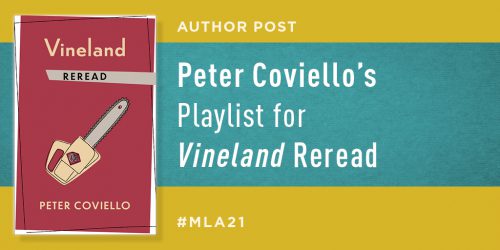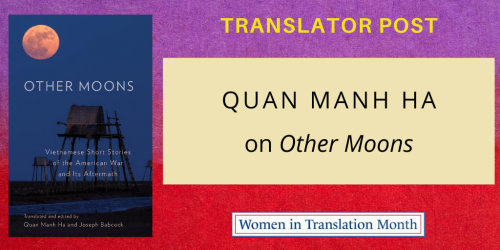Interview with Stephen Schryer, author of "Fantasies of the New Class"
The following is an interview with Stephen Schryer, author of Fantasies of the New Class: Ideologies of Professionalism in Post–World War II American Fiction.
Q. What drew you to the topic of professionalism in post–World War II American fiction?
Stephen Schryer: As a Canadian, I’ve often been fascinated by the relative weakness of the American welfare state in comparison to that of other first world nations. Part of the puzzle is that in the 1930s, during the New Deal, the United States seemed poised to follow the path of the European social democracies that were emerging at that time. When I started this project, my goal was to use the fiction of the post–World War II period to help figure out why the nation didn’t take that path. My starting point was a series of sociological debates from the 1960s and 1970s about the so-called new class. During this period, intellectuals from across the political spectrum—liberal, conservative, and left wing—argued that university-educated professionals were in the process of displacing the old, capital-owning bourgeoisie as the dominant segment of the dominant class in all first world societies. Figures like Alvin Gouldner, on the left; Talcott Parsons, in the liberal center; and Irving Kristol, on the neoconservative right, argued that this new class would usher in a more robust welfare state. They pointed to the massive expansion of the university system, to the dependence of most industries on specialized expertise, to the growth in the number of workers who identified themselves as professionals on the National Census. They also pointed to the fact that since the Progressive Era, professionals have often been at the forefront of efforts to establish the welfare state.
What was wrong with this prediction? Obviously, this is a huge question, one that I couldn’t hope to answer comprehensively in a study of post–World War II fiction. But I was guided by the belief that literature—fiction in particular—can provide cultural historians with a complex picture of the ideological divisions of the society that produces it. Fiction seemed to me especially well suited to tackling the topic of professionalism, since writers belong with varying degrees of comfort or discomfort to the educated middle class. As I read the fiction of the post–World War II period, I found echoes of Gouldner and Kristol’s argument in the work of literary critics and novelists as diverse as Lionel Trilling, John Crowe Ransom, Ralph Ellison, Mary McCarthy, Saul Bellow, Ursula K. LeGuin, Marge Piercy, and Don DeLillo. I became especially interested in the mechanism by which these writers imagined that the new class would displace the old one. This mechanism was purely cultural; the new class would carry the culture of the university out of its walls and reshape American society in its image. Some writers viewed this prospect with elation, others with dismay. I refer to this belief as new class fantasy and argue that it was a crucial element of post–World War II literary and intellectual culture.
Q: Why do you refer to this belief as a fantasy? Hasn’t the postwar expansion of the university, in fact, transformed U.S. society and culture?
SS: Yes, the university has dramatically changed American society but not in the way that most of the writers I discuss imagined. They believed that the new class was, at least potentially, the bearer of anti-rationalistic attitudes that would chasten U.S. capitalism. In adhering to this belief, they overlooked the profound divisions within the professional class. In particular, they missed the fact that large sections of this class were moving toward an ideology that sociologist Steven Brint refers to as expert professionalism—an ideology that views expertise as a commodity for sale. Most important, in their attachment to the anti-rational and in their singular focus on cultural politics, many postwar writers lost touch with what I believe to be the utopian core of American professionalism: the notion that professionals, using their expert knowledge and guided by a sense of responsibility toward the public, can help design more humane institutions. At its worst, new class fantasy instead became a source of consolation for intellectuals—especially humanistic intellectuals—who felt themselves excluded from direct power and influence. They got to believe that the work they performed as writers and academics had a kind of magical impact on the society they lived in.
Q: Did this fantasy affect the kind of books that postwar novelists wrote?
SS: Because of their exaggerated sense of the new class’s impact on society, many postwar writers moved toward a conception of fiction as a tissue of ideas generated by competing knowledge experts. New class fantasy, in other words, transformed writers’ sense of the social reality they were trying to represent in their work. You see this conception of the novel especially in the work of writers and critics influenced by or associated with the New York Intellectuals—like Saul Bellow, Ralph Ellison, Lionel Trilling, and Mary McCarthy. For all of these writers, creating a novel meant playing different ideas generated by intellectuals off of each other in a dialectical fashion. This model of the novel also extends well beyond the New York Intellectuals. Don DeLillo is a case in point. In my chapter on him, I focus on White Noise as a kind of reductio ad absurdum of the new class fantasies that I explore throughout the book. The novel is a fascinating exploration of a society in which professional expertise has run amuck. Reality in that novel has been entirely displaced by the opinions of various competing experts—such that characters can’t even tell whether or not it’s raining outside without consulting a meteorologist.
Q: Does new class fantasy continue to inform the work of recent writers? Are there any writers who have tried to revive what you call the utopian core of professionalism?
SS: My book ends in the 1980s and 1990s, with my readings of DeLillo’s White Noise and Underworld. Since the 1990s, it’s been increasingly difficult for writers and literary critics to sustain the belief that the new class in general or humanistic intellectuals in particular might undo neoliberalism through the sheer force of their cultural influence. This idea has been slowest to die in the humanities—especially in English departments—where scholars and teachers are understandably invested in the idea that literature can be used to create a chastened middle class. This model of literature’s social impact, after all, is a very old one, stretching back at least as far as Matthew Arnold. But even in the humanities, the more grandiose claims of post–World War II new class fantasy now seem increasingly far-fetched.
Amongst novelists themselves, the writers who have had the most to say about professionalism since the early 1990s have been those most interested in the computer sciences—both technology-savvy novelists like Richard Powers and some of the better science fiction writers. These novelists tend to depict the professional class as moving ever more firmly toward what Steven Brint calls expert professionalism—professional expertise that’s owned by private corporations and that no longer requires a commitment to the public good. You see this especially in post-cyberpunk novels published in the 1990s, like Neal Stephenson’s Snow Crash and Marge Piercy’s He, She and It. These writers depict a world in which the welfare state has entirely vanished and professional labor (in the form of computer coding and other highly technical work) has been completely proletarianized. There is nevertheless in some of this work a sense of nostalgia for an older, more public-oriented professionalism. I see this nostalgia especially in Kim Stanley Robinson’s mid-1990s Mars Trilogy, where he imagines several generations of scientists constructing a utopian society on Mars. It’s a depressing state of affairs when we as a culture can only imagine experts helping to construct a better society on another planet.




